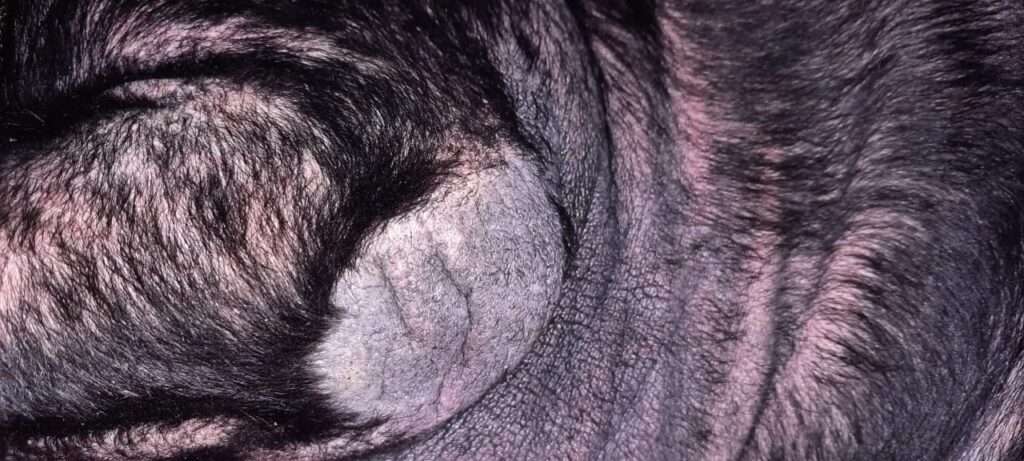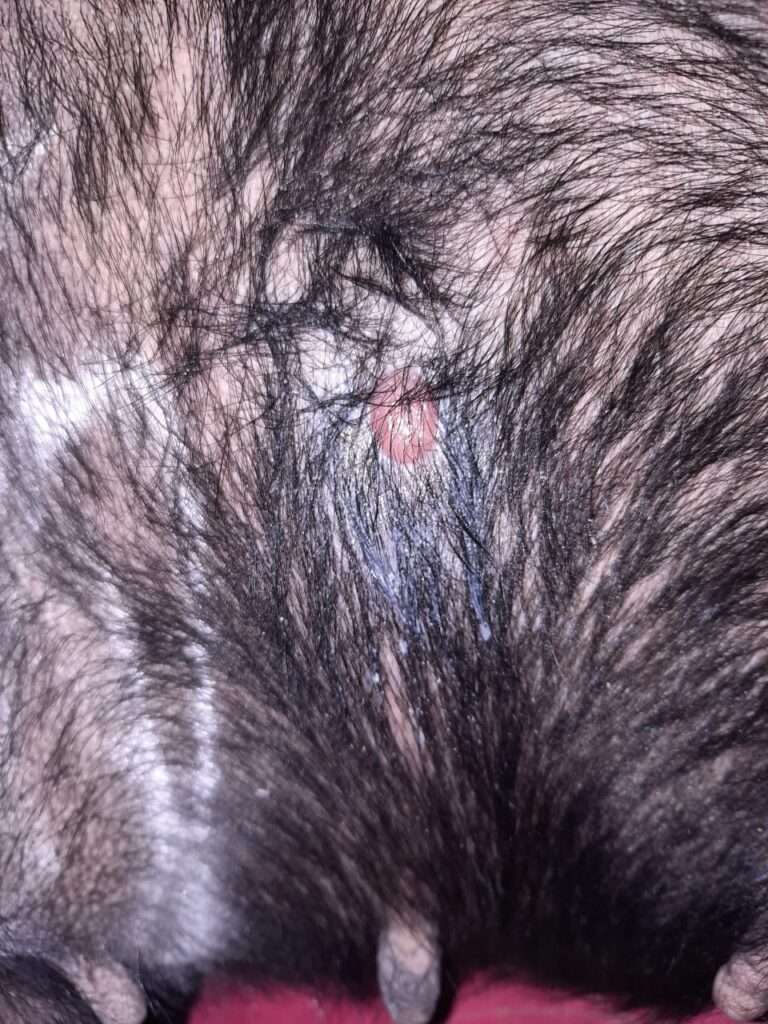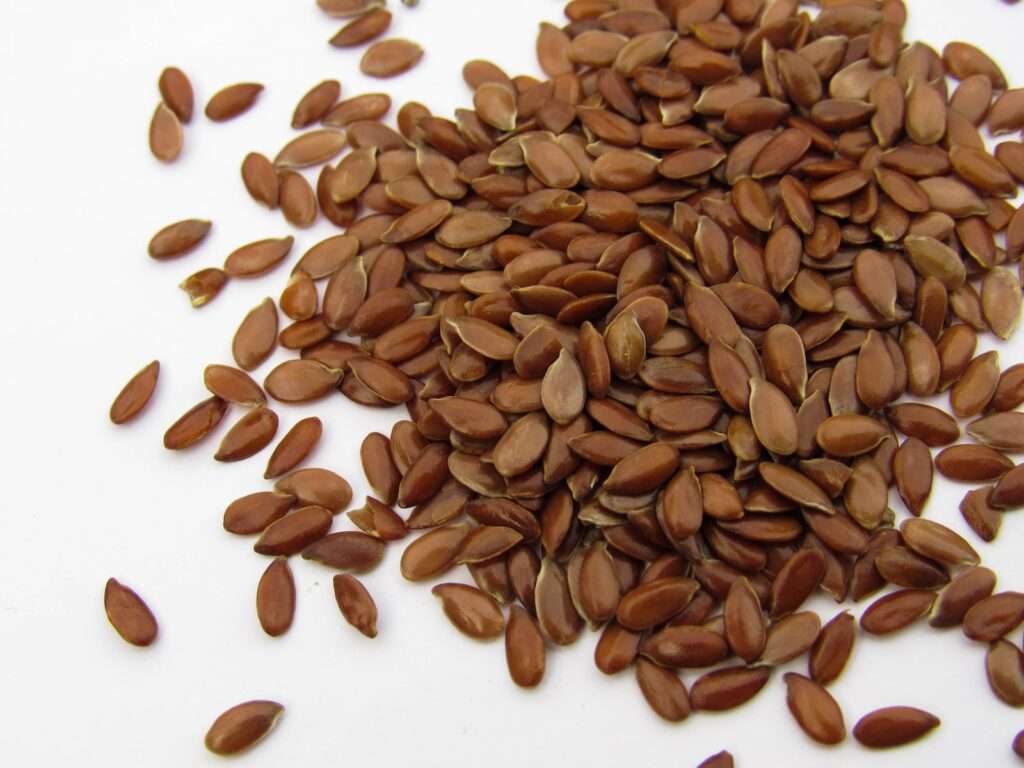Eczema in hypoallergenic dogs appears to be less talked about, and many pet owners have lost hope for a cure. Are you noticing your pet continuously itching and scratching its ears and elbow? Have you seen the skin getting thick around the chest areas and uncontrolled shedding, so its skin is visible? Are you tired of testing tons of medicines, foods, and shampoos for your pet allergic to almost everything? Many pet parents are dealing with eczema years after years in their pet dogs, and some have witnessed hypoallergenic symptoms within their beloved pets.

Then a few deal with both issues simultaneously and are entirely lost regarding what they should do to comfort their pets. Eczema in hypoallergenic dogs could be a severe condition if not addressed properly and promptly. In some instances, pets suffering only from eczema could be treated with several medications, and external usage products like shampoos, anti-itching oils, and creams often work. Pets with hyper-allergies are more prone to suffer as it is pretty tricky to use any medicine without testing. Well, this article could give all the answers you seek to deal with such a complex situation with your pets.

What is eczema in hypoallergenic dogs?
Not only do humans have a skin allergy called Eczema, but it can also be detected in dogs with the clinical name of atopic dermatitis. Eczema in hypoallergenic dogs has become a significant problem for 10 to 15% of dog owners who face the issue with an unforgettable condition that worsens daily. Eczema causes extreme itching in the skin, causing it to be dry and flaky, while with time, it starts to get more severe, manifesting signs like thick skin around elbows and hind legs, extreme shedding, bald patches, red skin, and so. Atopic dermatitis is also skin inflammation that comes genetically and requires extensive treatment. Holistic treatment can be used to treat it effectively.

Eczema or atopic dermatitis is not a life-threatening condition. Still, it is uncomfortable and painful for pets who pass their valuable lifetime only by itching and scratching themselves. Eczema can lead to several other infections and make them vulnerable to their immune system, possibly impacting their other organs in the future. One type of Eczema that can be seen in dogs is wet eczema, which causes moisture or water-like substance in the skin, under the arms, or in the elbow area along the neck.

Also read: Important Step to Take Proper Care of Your Dog After Surgery- Know In Details.
Despite several names given to eczema or dermatitis, Eczema can sometimes be detected in a dog in the form of a hot spot or red patch on the skin with a little sticky substance around it. Another thing you can notice in Eczema is red patches on the skin oozed out with a pus-like substance, and sometimes blisters appear on the skin.

Causes of Eczema In Hypoallergenic Dogs
The causes of eczema can directly be linked to atopic dermatitis or the hyperallergic cells in a dog’s body. The leading causes of Eczema are identified as the sources being instigated by the natural environment or any allergen antibody that creates a reaction and an inflammatory manifestation in dogs. Environmental factors like the monsoon season, dust, or cobweb could effectively increase the intensity of itching or skin inflation which Eczema has already triggered.
Shop our all natural pet formulas at PetJoy!Also Read: How to choose the best health insurance for dogs
Nonetheless, Eczema and hyper allergy are related to each other and occur in dogs sometimes due to their genetic conditions where their parents might have this autoimmune disease, which comes down to their puppies in heredity. Some of the common causes of eczema in hypoallergenic dogs are mentioned below.
- Food allergies
- Pollen
- Fleas or parasites
- Dust or mud
- Contact with grass or specific plant.
- Monsoon season ( as several bacteria get activated during this time).
- Chemical exposure like pesticides and floor cleaners.
Also Read: How to Manage False Pregnancy in Dogs: Know 8 Dynamics
Symptoms of Eczema in dogs
The symptoms of Eczema in dogs are similar to what humans experience, involving excess itchiness, redness, hotspots, thick and flaky skin, and sensitive and painful areas of bald patches. In some instances, it would sometimes be difficult to detect the unmistakable signs of Eczema in dogs as there are different types of signs and symptoms that could occur in their life cycle. The most common and initial signs of Eczema in hypoallergenic dogs are mentioned below.
- Excess itching ( all the time)
- Licking paws and redness inside paw pads.
- Dry and flaky skin (sometimes chunks of flaky skin like a big dandruff piece could come out)
- Thickened skin
- Redness of the skin (inflamed)
- Skin Lesions
- Excessive hair loss
- Bald patches ( hotspots, pus-like oozing)

Also Read 5 Best Arthritic Beds for Senior Dogs – A great way to treat your senior pet.
Treatments available for eczema in Hypoallergenic dogs
While talking about allergies, ample therapies are available depending on the level of allergic reaction in dogs and the severity of the treatment. Almost 50% of the US population of dogs of any breed are affected by Eczema on atopic dermatitis. The available treatments are;
Medicated bath:
One of the primary treatments involving medicated shampoos combined with specifically benzoyl peroxide is the most effective in reducing inflammation, itching, and redness of your dog’s skin.
Antibiotics And Antifungal Medicines:
Along with the medicated bath, several types of antibiotics and antifungal medication are often prescribed based on your dog’s severity or stage of eczema.
Flea Control Medication:
Flea control meditation is another way of treating dogs with eczema that sometimes occurs due to flea infestation as a source of parasites.
Supplements
Along with other treatment options, the supplements like omega 3 and 6 are the most important in treating eczema. The anti-inflammatory and antioxidant supplements in Omega 3 and 6 are pretty effective in treating the condition while increasing the hydration and moisture of your dog’s skin. Based on research, Omega 3 and 6 supplements in the form of oil to your dog with their food for a long-term effect.
Hypoallergenic Diet For Eczema:
The treatments for Eczema in dogs can also be considered by including a hypoallergenic diet or food in their regular meal. Eczema in hypoallergenic dogs increases due to exposure to bacteria or external viruses. In contrast, the Hypoallergenic diet provides the protein and carbohydrates that would help enhance the immune system and fight back allergic reactions. In such cases, vet-approved hypoallergenic diets should be considered as they contain 100% anti-allergen and anti-inflammatory dietary products. These natural sources of protein and carbohydrates could be found in chicken, egg whites, duck, pumpkin, Salmon fish, or any fish not usually found in processed foods.

Steroids:
Steroids are another significant source of treating atopic dermatitis in dogs as they contain Cortisone, prednisone, prednisolone, and dexamethasone, which are effective for reducing itching, inflammation, and bald patches. But it is often recommended not to opt for the steroids as it severely impacts your pet’s kidney, liver, and heart if given for a long time.
Also, Read Steroids-how does it influence a dog’s quality of life?
8 Natural Ways To Manage Eczema in Hypoallergenic Dogs
Along with various treatments available, the pet parents could manage the extremity of eczema or atopic dermatitis in their pets. Considering the allergies in pets, giving them medicines or processed elements could lead to future organ damage or any other severe conditions we do not want to witness. We can get several natural resources in our kitchen or daily groceries that would help manage the hyper allergies and eczema in dogs. Among several; items, the most used and effective items are discussed below.
- Coconut Oil

Organic coconut oils are a rich source of lauric acid, which helps quick skin penetration and increases skin elasticity. Coconut oil also contains the natural fatty acid, which produces the antimicrobial agent effective for fighting against the dry, rough, flaky skin caused due to eczema. Most importantly, the organic coconut oil is 100% safe for your allergic pet. You can apply it in a luke wark condition on your pet’s skin and clean it with a mild anti-allergic shampoo.
2. Almond Oil

Almond oil is another effective natural emollient source that helps lock the moisture under the skin’s surface. When applied in a liquid format on your dog’s skin, it eventually moisturizes and helps repair the cell damage due to the extreme dryness caused by Eczema. It is advised that only cold compress almond oil should be applied, which is organic and free from any chemical infusion while being processed.
3. Aloe Vera Leaf Extract

Aloe vera leaf extract or the natural gel inside aloe vera leaves could be an extremely effective natural source of relieving your pet from the itchy and dry skin due to Eczema. The natural gel extracted from the aloe vera leaf can be applied to your pet’s skin, or you can mix it with a bit of warm castor oil and stir it until it forms a creamy white texture. It will help lock the skin’s moisture while reducing your pet’s dryness, redness, and itchiness.
Applying the aloe vera gel to the inflamed area or the hotspot will work like magic, and the redness or the sore spot will be reduced within minutes. You must wash your pet with the mild skin-friendly anti-allergic shampoo after applying aloe vera leaf extract ( do not leave it on the skin for safety purposes).
4. Flaxseed Gel

With Omega 3 and fatty acids, flaxseed is one of the most working natural sources for Eczema that can provide immediate relief to your pet’s continuous itching. Flaxseed powder can be mixed with the food, or Flaxseed gel can be applied to your pet’s skin. Flaxseed is rich with lipid elements that can provide adequate proteins to the skin, and the flaxseed gel is also very soothing for inflamed and irritated skin. You can boil one tablespoon of flaxseed in water and keep it aside for some time to cool down, and you will find a gel-like consistency ready to apply to your dog’s skin if you find your dog scratching too much or bleeding due to the extreme itchiness.
5. Castor Oil

Castor oil contains antifungal, antibacterial, and anti-inflammatory properties that help in healing wounds faster. Due to its thick consistency, it is not easily observed in the skin, but lukewarm castor oil can be applied directly on the skin or mixed with aloe vera gel or flaxseed gel. The natural properties and healing elements in castor oil will immediately provide moisture to your pet’s dry and flaky skin from Eczema. However, applying once a week can give you a surprising result with supple skin that has been rough, thick, and easy for so long.
6. Cedarwood oil

Cedarwood oil contains the natural antibiotic, antifungal, and healing properties that would help heal the scratches that your dog often performs while itching their sensitive areas. It helps in naturally treating the hotspot and reducing the inflation in the exposed areas of your dog. Whereas the topic of dermatitis can also be managed to some extent without involving any chemical-induced products.
7. Oatmeal Bath

Oatmeal has an emollient that helps lock the moisture under the skin’s surface for a long time. In contrast, oatmeal baths for your pets can help them feel relieved of Eczema’s itchiness and continuous uncomfortability. The anti-inflammatory element in oatmeal reduces skin inflammation, redness, and itchiness.
8. Omega 3 & 6 Oil

Omega 3 & 6 are the most effective and fast-working supplements in the daily kitchen: salmon fish, flaxseed oil, chia seeds, cod liver oil, avocado, and so on. Still, if you do not have the time or cannot make your pet eat these things, then you can buy Omega 3 & 6 oil supplements which are also similarly effective in manifesting results.
Additional tips on a hypoallergenic diet for eczema in dogs
Along with the aforementioned natural items, there are certain types of food or dietary things that you could consider while dealing with eczema in dogs. You can give your dog yogurt, which is believed to be a source that increases eczema. Still, the probiotic properties in curd could enhance your dog’s gut health, eventually growing its skin’s hydration level. Apart from this, flaxseed power mixed with chia seed powder can also be given to maintain the protein level in their body and supply omega three and fatty acid.
Closing Remarks
Currently, many products and medicines on the market promise tons of things, but dogs with hyper allergies are prone to have an allergic reaction to almost everything, which could be fatal sometimes. Hence, depending on the natural resources and ingredients would provide you the scenario to treat and help your pet while relieving yourself from the tension of their health being compromised.

